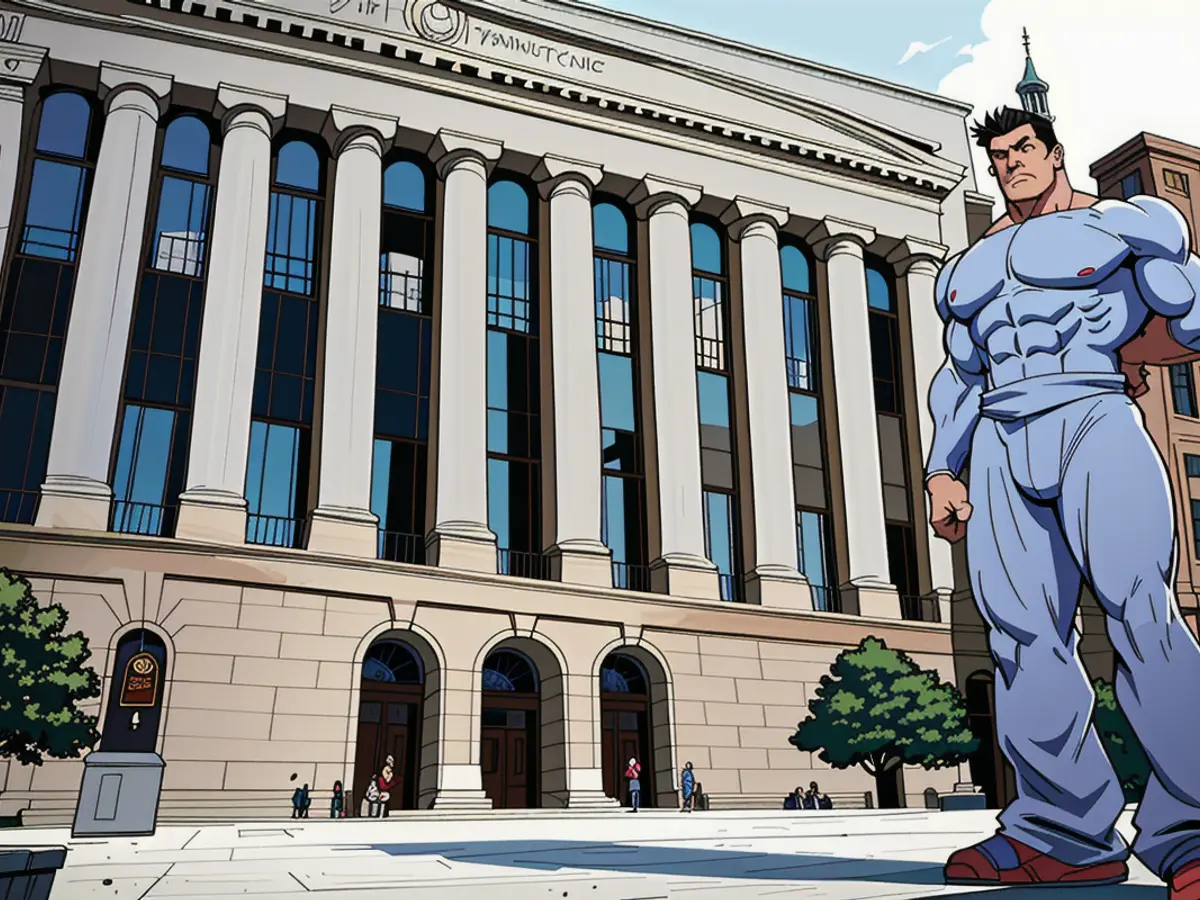Insights from a federal appeals court proceedings pertaining to Trump's application of the Alien Enemies Act
In the heated circuits of the legal battleground, the Justice Department is aggressively challenging a federal court's temporary restraint on President Trump's deployment of an expansive wartime power to expedite the deportation of suspects linked to a notorious Venezuelan gang – Tren de Aragua.
On Monday, the US DC Circuit Court of Appeals hosted a lively hearing, serving as the latest battlefield in an intensifying conflict between the administration and the affected minorities. The showdown between the White House and the targeted individuals centre around a proclamation signed by the President earlier this month, which invokes the Alien Enemies Act to swiftly expel them from US soil.
The three-judge panel deliberating the administration's appeal request is yet to rule on the matter, nor is there any certainty about the timing of their decision. During the federal court's session, attorneys for both sides faced an array of questions concerning various critical aspects of the case, such as whether removed individuals were afforded any rights that would permit them to contest claims they are members of Tren de Aragua, and the appropriate channel for lodging such objections.
One particularly vocal panel member – Judge Patricia Millett, a former appointee of President Barack Obama – voiced concerns over Trump's application of the Alien Enemies Act, which she believed stripped affected individuals of necessary due process rights to challenge the government's accusation of their gang membership. Millett even went as far as comparing the treatment of those targeted under the Alien Enemies Act to the less favorable treatment afforded to Nazis expelled from the US in the past, citing insufficient procedures, lack of notice, and absence of hearing boards for the Nazi removal cases.

A Trump appointee, Judge Justin Walker, seemed to concur that the people in question deserved an opportunity to contest their removal under the Act. However, while Walker seemed sympathetic to the challengers, he seemed less convinced about the overall challenge to Trump's innovative utilization of the law being adjudicated by the federal court in Washington under the Administrative Procedure Act. Instead, Walker suggested that such challenges should bypass the intermediate court and proceed through habeas complaints lodged in the district courts where they are detained.
The challengers' legal team argued that allowing the deportations to proceed would thwart further litigation before the district court and diminish the opportunity to develop a more comprehensive factual record for future court consideration. Lee Gelernt, an ACLU attorney representing the challengers, noted that the attempt to invoke the Alien Enemies Act for the fourth time in US history during peacetime without a declared war was unprecedented. Gelernt emphasized that Boasberg's current orders preserve the status quo while they work to gather all relevant facts, adding that numerous individuals targeted may have no ties to the gang.
Regardless of the appeals court's decision, it's likely that the eventual ruling will be appealed by the opposing party to the Supreme Court. Walker, during the hearing, hinted at a potential Supreme Court role, questioning if the panel should temporarily hold their decision to give the losing side a chance to petition the high court before the decision takes effect. Boasberg's orders are set to lapse on Saturday.

- On Monday, Judge Patricia Millett, a Venezuelan-related issue came to the fore during the hearing at the US DC Circuit Court of Appeals, where she appealed against Trump's application of the Alien Enemies Act, citing concerns over due process rights.
- In an unusual pairing, Judge Justin Walker, a Trump appointee, agreed with Millett that those targeted deserved an opportunity to contest their removal, but he also expressed doubts about the overall challenge to Trump's use of the law.
- If the appeals court rules in favor of the challenge, it is likely that the opposing party will appeal the decision to the Supreme Court, setting the stage for a potential pair of appeals on the matter.










